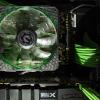AMD Faces Class Action Law Suit.
-
Featured Topics
-
Topics
-
Shadeamous ·
Posted in Linux, macOS and Everything Not-Windows1 -
Foure ·
Posted in Networking0 -
7
-
Twiney_ ·
Posted in Troubleshooting0 -
mwthomas10 ·
Posted in Troubleshooting3 -
2
-
Nightmare-Rex ·
Posted in Windows6 -
13
-
4
-
Master_Kilvin ·
Posted in New Builds and Planning0
-



















Create an account or sign in to comment
You need to be a member in order to leave a comment
Create an account
Sign up for a new account in our community. It's easy!
Register a new accountSign in
Already have an account? Sign in here.
Sign In Now